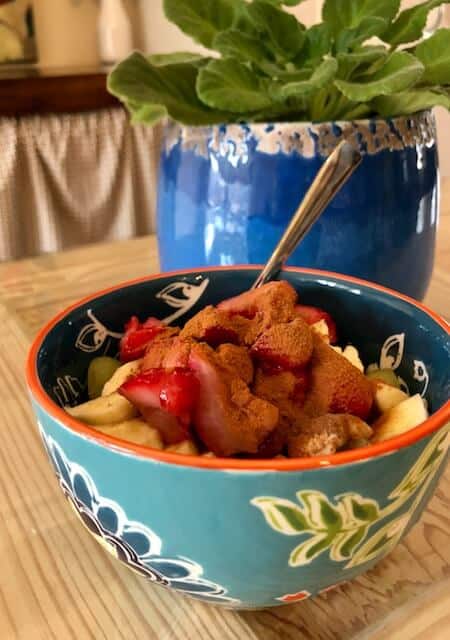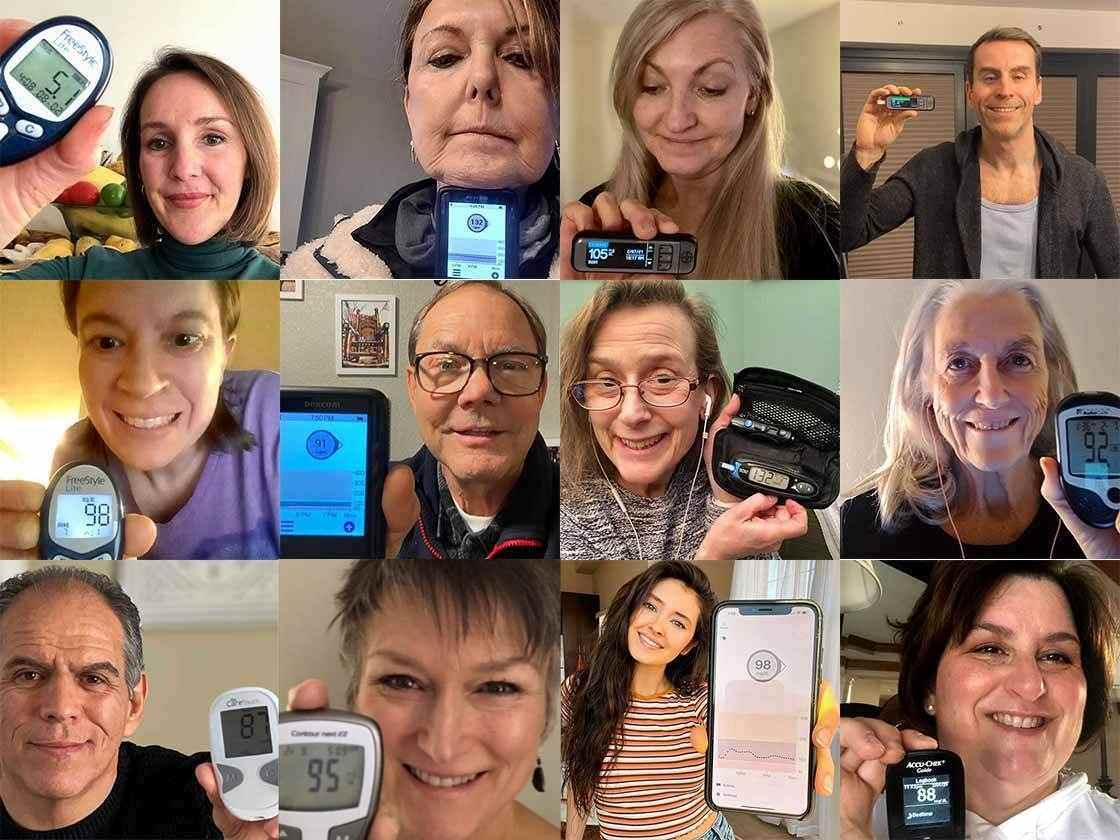When Rebecca was diagnosed with type 1 diabetes, she was not given much guidance in terms of dietary recommendations (as is unfortunately the case for many people).
The advice that she did receive was to eat a low-carbohydrate diet, so – being a perfectionist – she decided to limit her carbohydrate intake to less than 20 grams per day, essentially eating a ketogenic diet.
Rebecca’s Experience Using a Ketogenic Approach
In retrospect, Rebecca laughs at her ketogenic diet because she was not willing to give up her daily latte, which contained 11 grams of carbohydrates. So ultimately, she ate only 9 grams of carbohydrate per day.
For 17 years, she did not eat a single fruit or starchy food. Her diet was primarily meats, cheeses, and nuts, with some vegetables on the side.
Despite following what many would call a perfectly executed ketogenic diet with strict precision, Rebecca’s health got worse. She gained weight, experienced terrible brain fog, felt exhausted, and her A1c climbed higher every year. She felt depressed and began losing hope. And she isn't the only one.
Take 2: Low-Fat, Plant-Based, Whole-Food Nutrition
Following a friend’s recommendation, Rebecca began seeing a new physician. Much to her surprise, her new doctor suggested that she start eating more fruit.
He told her to look into the Mastering Diabetes program to learn more about using low-fat, plant-based, whole-food nutrition to control type 1 diabetes.
She jumped in and started browsing the website, and purchased the Mastering Diabetes Online Summit so that she could hear nutrition advice from a variety of experts.
Although what she learned completely contradicted her ketogenic diet, she decided that to give low-fat, plant-based, whole-food nutrition a try.
With some skepticism, Rebecca began adding foods like fruits, beans, whole grains, and potatoes. Within day, all of her worries were put to rest as she immediately saw improvements in her insulin sensitivity.
Contrary to what she expected, the more carbohydrates Rebecca ate, the less insulin she needed.
When Rebecca was eating 20 grams of carbohydrate per day, she required 18-20 units of total insulin. As she increased her intake to 130-200 grams of carbohydrate per day, she reduced her insulin needs to around 13 units.
After the first 3 months, her A1c dropped from 7.3% down to 6.1%.
Rebecca also saw a massive drop in her cholesterol levels. Her total cholesterol dropped from 340mg/dL to 130 mg/dL, and her LDL cholesterol lowered from 227 mg/dL to 59 mg/dL.
Despite eating the same amount of food as she always had (and in time, she began eating even more than she had on her strict ketogenic diet), she lost weight – about 15 pounds in total.
In the past, she had counted every calorie and felt like she had to restrict her intake. But while eating a plant-based diet, Rebecca found a sense of freedom. She now eats as much as she desires until she feels full, and maintains a healthy body weight.
The table below summarizes these results:
Biomarker | Before | After (3 months) |
|---|---|---|
A1c | 7.3% | 6.1% |
Average grams of carbohydrate eaten per day | 20 | 130-200 |
Average units of insulin needed per day | 18-20 | 13 |
Total Cholesterol | 340 mg/dL | 130 mg/dL |
LDL Cholesterol | 227 mg/dL | 59 mg/dL |
Weight | baseline | dropped 15 pounds |
What Rebecca Eats
Here’s a sneak peek into a typical day of Rebecca’s eating:
Rebecca loves eating this way and truly enjoys every meal. She loves knowing that every bite is nutrient dense, and packed with micronutrients.
Low-fat, plant-based, whole-food nutrition gives Rebecca boundless energy to take care of her 5 children, and has eliminated the brain fog that she used to feel when eating a ketogenic diet. She is significantly happier and her life is fuller.
She wants everyone to know that for optimal diabetes health (and to live their best, fullest life), they should “Eat plants! ...Lots and lots of plants.”


Lower Your A1c and Get to Your Ideal Body Weight ... Guaranteed

Your results are guaranteed. Join more than 10,000 ecstatic members today
Personalized coaching puts you in immediate control of your diabetes health, helps you gain energy, improves your quality of life, and reduces or eliminates your meds.
Give Rebecca a virtual high five in the comments below!
Leave a comment below to congratulate Rebecca on her success. Let us know if you have any questions about how to get similar results.

